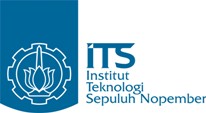Development of A Simulink Model To Investigate Fuel Consumption And Efficiency Of A Main Fuel Engine
Abstract
Marine business is one of the largest businesses in the world. Exports and Imports of human necessities in the majority are using ships. This is because of the ratio between the goods that can be delivered on each trip and the number of trips it can go to fulfill this. This makes the shipping or transport cost-efficient. But the continuous growth of the world population and its standard of living creates an ever-increasing dependency for the world economy on international trade. Therefore a good shipping company will always develop a better way of shipping together with more efficient and optimized voyage planning. To increase the efficiency of shipping, companies try to reduce the cost of almost everything. Therefore, one of the options for improving the efficiency of shipping is by increasing the efficiency of the ship itself. The ship efficiency is not only determined by how fast the ship and how much the ship can load, but also how much fuel does the ship consume for each operation. An investigation of the engine efficiency must be done. The investigation will be done by using an engine model in Simulink to create a similar engine model to the real engine. Then simulate the dynamic process of the engine, which will affect the consumption in general. Therefore the consumption of the engine can be analyzed. The results of this bachelor thesis is an explanation of how to develop the engine model. This includes the explanation of what is the engine efficiency and the engine parameters that affect efficiency, such as engine consumption, engine losses, etc. The model development includes the change in parameters and model structure. Then a simulation is done to compare the results with the measured data. From this process, the model can be considered satisfactory when the results are similar to the measured data.
Keywords
Full Text:
PDFReferences
Pulkrabek, Willard W. Engineering Fundamentals of the Internal Combustion Engine. New Jersey: Prentice Hall.
Taylor, Charles Fayette. The Internal Combustion Engine in Theory and Practice, Volume II. s.l. : The M.I.T. Press, 1985.
Wallace, Scott J. Diesel Engine Energy Balance Study Operating on Diesel and Biodiesel Fuels. 2007.
Mazouz Salahat, Omar Barbarawe, Mohammad AbuZalata, Shebel Asad. Modular Approach for Investigation of the Dynamic behavior of Three-Phase Induction Machine at Load Variation. Amman, Jordan: Scientific Research, 2011.
MathWorks, The. Using Simulink. s.l.: The MathWorks, 2004. Vol. 6.
Winkelmann, Dr.-Ing. Jörg. Drehschwingungsberechnung für Diesel-Generator-Triebsatz. s.l.: SOWICon, 2016.
Nichols, J.G. Ziegler and N. B. Optimum Settings for Automatic Controller. Rochester, New York: ASME, 1942.
Píštěk, Pavel Kučera and Václav Virtual Diesel Engine in Simulink. 2013, Vol. VIII.
Cao Hui, Wu Peili and Zhang Jundong. Modeling and Simulation of Working Process of Marine Diesel Engine with Comprehensive Method. s.l.: ISSN, 2013, Vol. V.
DOI: http://dx.doi.org/10.12962%2Fj25481479.v5i3.4055
Refbacks
- There are currently no refbacks.
 |  |  |  |
| |  |  |
|
|
|
|
|
P-ISSN: 2541-5972
E-ISSN: 2548-1479
IJMEIR journal published by Department of Marine Engineering, Faculty of Marine Technology, Institut Teknologi Sepuluh Nopember Surabaya Indonesia under licenced Creative Commons Attribution-ShareAlike 4.0 International Licence. Based on https://iptek.its.ac.id/index.php/ijmeir/


1.png)
